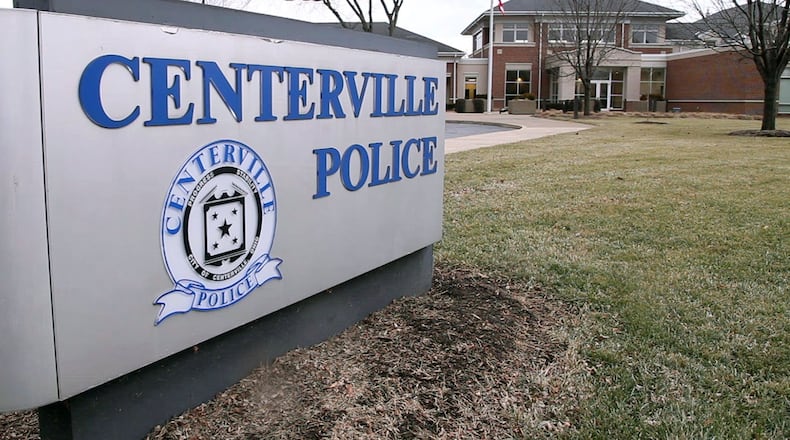In the documents, the city states that all actions taken by both men in connection with the case of James Myers v. city of Centerville were within the scope of their employment.
The documents say the city agrees to defend Brown and Davis and hold them harmless from any personal liability resulting from Myers’ lawsuit.
In exchange, Brown agreed not to resign prior to Jan. 1, 2024. And Davis, whose contract with the city runs through Aug. 20, 2024, agreed to provide no less than 180 days written notice in advance of any separation from the city.
“City council wanted to make it clear that we support our city manager and police chief,” Mayor Brooks Compton told the Dayton Daily News. “We unanimously agreed that the two acted within their authority and scope of employment regarding this issue.”
Credit: Jerry Huffman
Credit: Jerry Huffman
Davis was hired in July 2017. Brown, who has nearly 25 years of service with Centerville Police Department, was named interim chief in February 2018 and appointed as chief in July of that year.
Myers, who had worked for Centerville Police Department for 25 years, was fired in March 2020, then sued the city of Centerville, Davis and Brown in U.S. District Court that September, seeking job reinstatement and back pay, plus compensatory and punitive damages. He said the city violated his free speech rights, and retaliated against him for reporting possible violations of law by other Centerville police staff.
In May 2021, the city of Centerville asked the court to issue judgment in the case based on the pleadings to that point, rather than moving on to discovery and further legal proceedings. In August 2021, a U.S. District Court judge denied the city’s motion.
Davis and Brown then appealed that denial, citing “the doctrine of qualified and statutory immunity,” which shields government defendants from being sued in many cases. That led to a three-judge Sixth Circuit U.S. Court of Appeals panel ruling last July in favor of Myers by denying the pair immunity and citing an exception when parties act “with malicious purpose, in bad faith, or in a wanton or reckless manner.”
Brown and Davis in August requested the case be heard en banc, or by all the judges of the Sixth Circuit U.S. Court of Appeals, rather than by one judge or a smaller panel of them. The court in October denied that request.
Davis said the addendum “ensures consistency moving forward.”
Brown told this news outlet he views the retention agreement as “city council’s recognition of the Centerville Police Department’s exemplary service to the city.”
Myers referred this news outlet to his trial counsel, Paige Richardson, who said she had no comment regarding the matter.
About the Author



